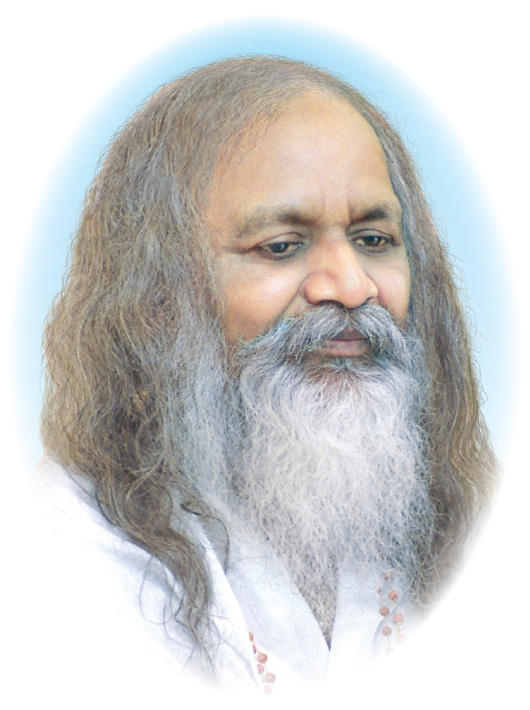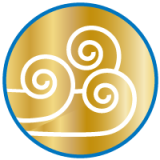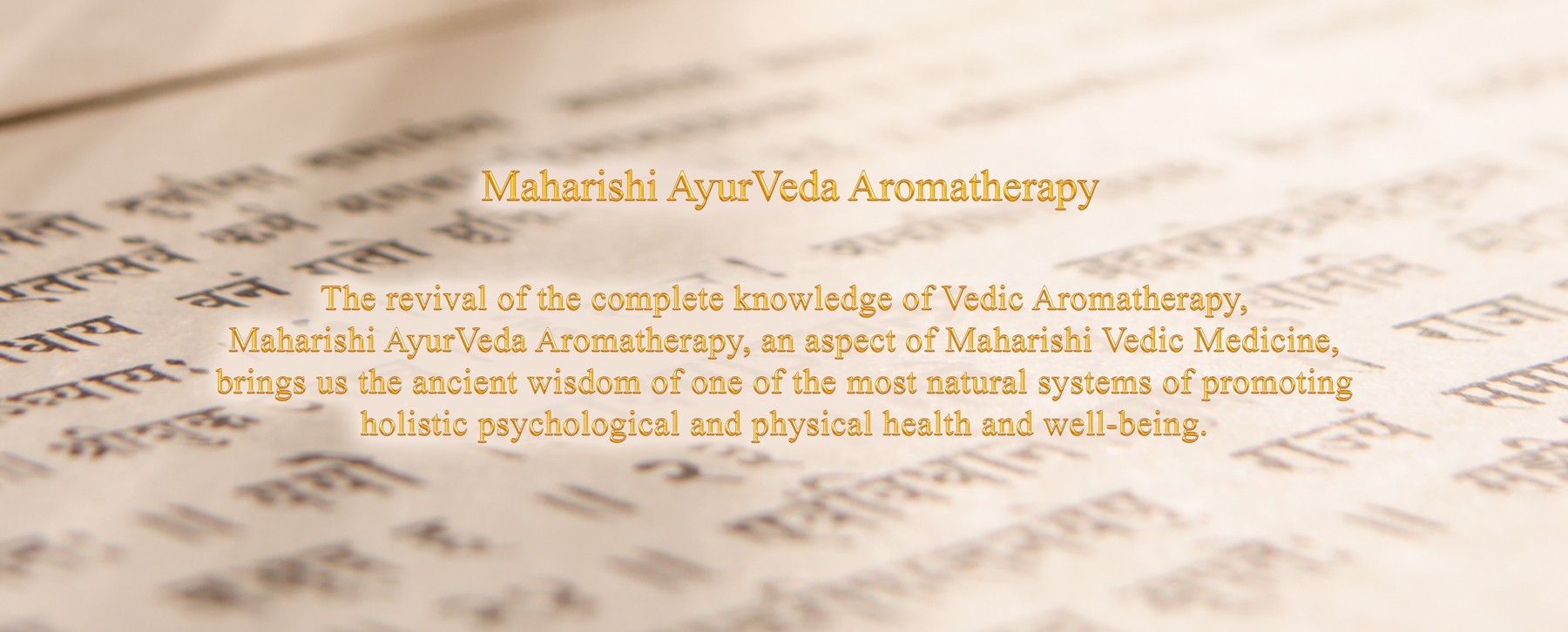Maharishi AyurVeda Aromatherapy
VedAroma Essential Oils have been classified by the traditional Ayurvedic Physicians according to their predominant quality of Vāta, Pitta, or Kapha. By applying the prescribed oil, balance may be brought to mind and body.
Every essential oil has a characteristic that is pacifying and balancing to either the Earth and Water elements, the Fire element, or the Ether (space) and Air elements in the physiology.
Maharishi Ayurveda Aroma Therapy applies the Essential Oils according to this traditional system of diagnosis for prevention of disease, preservation of good health, and promotion of longevity, and is a beautiful gift of knowledge for holistic health care.
The revival of the complete knowledge of Vedic Aromatherapy, an aspect of Maharishi Vedic Medicine, brings us the ancient wisdom of one of the most natural systems of promoting holistic psychological and physical health and well-being.

Maharishi Mahesh Yogi
Maharishi AyurVeda Aromatherapy
In 2006, together with experts in Aromatherapy, Maharishi designed the protocols for AyurVeda Aromatherapy as an integral aspect of Maharishi AyurVeda. He simultaneously created VEDAROMA, the Maharishi AyurVeda Aromatherapy product line of 100% pure certified organic essential oils, adding Vedic Technologies to enhance even further the quality of these oils.
In the name of VEDIC AROMA, Maharishi inspired the theme of Perfumery through Aromatherapy – Fragrances that Heal, upholding and promoting the principles of Maharishi AyurVeda to utilise all the five senses in its prevention-oriented health care programmes, and for the preservation of perfect health – Aromatherapy being one of the precious modalities of Maharishi AyurVeda.
Maharishi founded the department of Maharishi AyurVeda Aromatherapy under the auspices of the Maharishi College of Perfect Health to make this timeless knowledge, its principles, practices, and products available worldwide.

AyurVeda identifies three fundamental principles of Nature’s functioning: Vāta Pitta & Kapha.
For normal healthy functioning of mind and body these should be in balance.

Vāta (space & air element)
principally movement, nervous system, breathing, process of elimination. When in balance, brings the experience of happiness, enthusiasm, energy, creativity, calmness, clarity, alertness.
Vāta pacifying essential oils balance an excess of Vāta. They have a warming and calming effect. They are recommended in cases of overload and stress, in the evening, while travelling, and during the cold season (autumn and winter).

Pitta (fire element)
responsible for metabolic processes, digestion, metabolism, body temperature, intellect. When in balance, brings contentment, energy, good digestion, a clear mind.
Pitta pacifying essential oils balance an excess of Pitta. They are cooling and soothing. They are especially recommended during summer. They balance hot temper and excessive appetite.

Kapha (earth & water elements)
principally structure-firmness and stability of body and fluid balance. When in balance, gives strength, stamina, patience and mental stability.
Kapha pacifying essential oils balance an excess of Kapha. They have a heating and stimulating effect. They are recommended when the weather is cold and wet and during spring season. They are good for people with a slow metabolism and who tend towards overweight.
The Ancient and Eternal Science of Life Called AyurVeda Documents the Application of Essential Oils for Promoting Health and Well-being
From ancient times Aromatherapy has been an integral part of AyurVeda. It is used and practised widely in AyurVeda. Aromas are extracted from five parts of the trees (Panchang): from the root, as in Vetiver, Spikenard; from the stem and bark, as in Cinnamon, Sandalwood, and Frankincense; from the leaves, as in Lemongrass, Mint, Basil; from the flower such as in Rose, Jasmine, Champaka; and from fruits such as Cardamom, Clove, Lemon, Orange, etc.
The mode of administration of Aromatherapy in AyurVeda is in the aroma oil application to the body (Sandalwood, etc.), nasal inhalation (Rose, Jasmine, etc.) and also internal administration (Mint, Ginger, etc.).
Aromatherapy is a part of Dravyaguna in AyurVeda. In Dravyaguna, in the chapter called ‘Karpuradi barga’, all the herbs mentioned contain aroma oils or essential oils, like Camphor, Cinnamon, Lavender, Clove, and Jasmine.
In science of AyurVeda essential oils are widely used for creating the perfect health.
Vaidya Achyutanand Pati

Vaidya Achyutanand Pati, M.D.Ayu. (G.A.U) Principal (retired), Post Graduate Department of Kayachiksta and Panchakarma Gopabandhu Ayurvedic Mahavidyalaya, Puri (Orissa).


